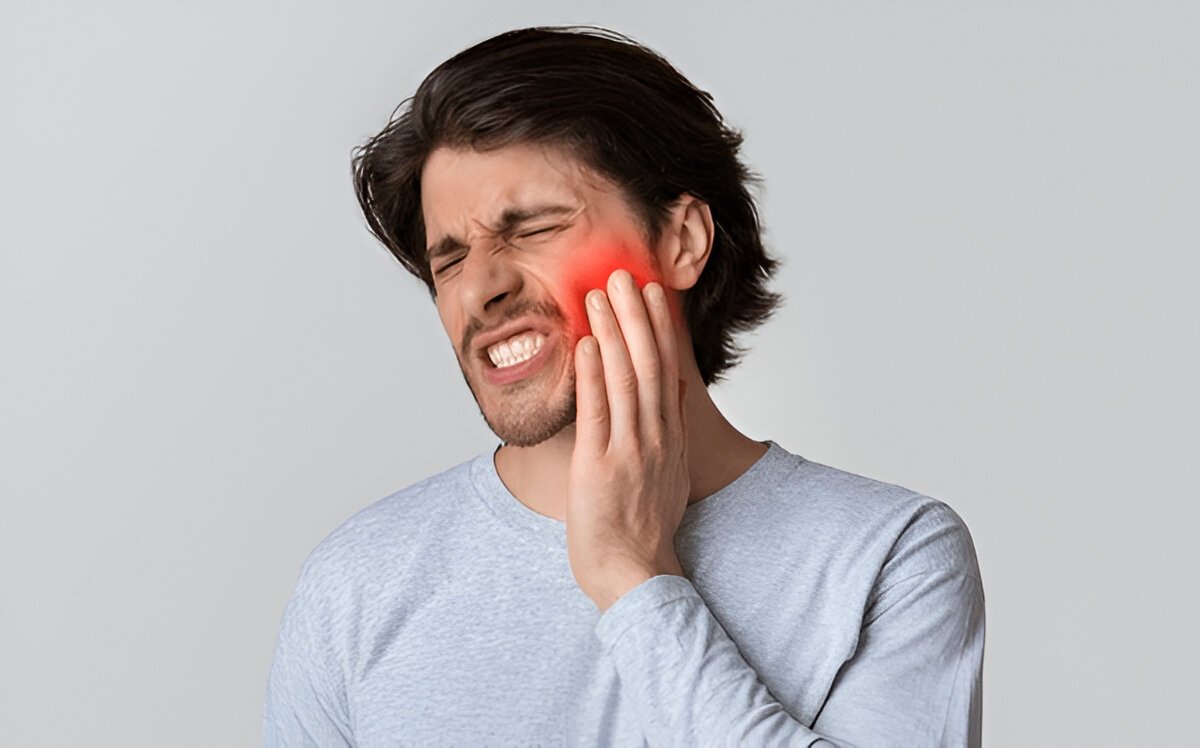You should call an emergency dentist if you’re experiencing severe tooth pain at night, especially if the pain is sharp, constant, or paired with swelling. Ignoring it could lead to infection, bone loss, or long-term damage.
Many people hesitate, unsure if the problem can wait, but some can’t, it’s always better to be cautious.
If you’re looking for reliable emergency dentistry in Sherwood Park, AB, it’s important to know you have a dental clinic you can contact and get the necessary care you deserve – our team here at Aspire Dental is here to help with that. We can let you know if the situation demands urgent attention or if it can wait until morning.
How Do You Know It’s an Emergency?
Not all toothaches need emergency dental care, but some signs can indicate that you need help fast.
Call an emergency dentist right away if you have:
- Severe swelling in your face or gums
- Severe or sudden tooth pain that doesn’t stop
- A knocked-out or broken tooth
- Bleeding that won’t stop
- Signs of infection (like fever, pus, or bad taste)
Pain that wakes you up or keeps you from sleeping is not normal. If over-the-counter medicine doesn’t help, don’t wait; seek out emergency dental care near you. The staff on call can help guide you on next steps.
What Happens During an Emergency Visit?
Emergency dental visits focus on alleviating pain, controlling infection, and getting your smile back to normal as quickly as possible.
A dentist in Sherwood Park may take these steps during your visit:
- Perform an X-ray to assess your tooth roots, nerves, and jawbone
- Drain an abscess or infection
- Reimplant an avulsed tooth or restore a tooth that’s damaged
- Perform an emergency root canal treatment
- Prescribe antibiotics or pain relief
If more treatment is needed later (like a crown or implant), they’ll schedule a follow-up once the case is under control. Be sure to let them know if you have any questions at any point in time.
What If It’s Just a Small Problem?
If you’re unsure, don’t take risks. That small crack or mild pain can quickly turn into a full-blown emergency.
Here’s a good way to decide what to do:
| Symptom | It Can Wait | Emergency |
|---|---|---|
| Mild, occasional toothache | Yes | |
| Sudden, sharp pain | Yes | |
| Minor chip, no pain | Yes | |
| Knocked-out tooth | Yes | |
| Bleeding that won’t stop | Yes |
Preserving Your Smile Until You See a Dentist
If you can’t get to the clinic right away, these tips can help alleviate discomfort temporarily:
- Use a cold compresses to reduce swelling
- Rinse with warm salt water to clean the area
- Take over-the-counter pain relievers (never place aspirin directly on gums)
- Avoid chewing on the painful side
- Keep the tooth moist (in milk or your mouth) if it’s been knocked out
Remember, these are only short-term fixes. They do not replace seeing an emergency dentist near you.
When to Prepare in Advance?
To avoid panic during a dental emergency, being prepared ahead of time is highly recommended:
- Save the number of Aspire Dental and find out if they offer after-hours emergency care.
- Know your insurance’s emergency coverage.
- Keep a small dental emergency kit at home (gauze, salt packets, and pain relievers).
Don’t Wait; Acquire the Care You Deserve
Toothaches that strike at midnight are scary, painful, and sometimes dangerous. If the pain is constant, intense, or paired with swelling or bleeding, it’s time to seek help. Waiting can lead to more expensive or painful treatment later. Aspire Dental is here to help with urgent dental care and after-hours emergencies.
If you’re facing a late-night dental issue or need guidance on next steps, contact our team today. Your comfort and health matter, even after dark.
FAQs
What should I do if my tooth gets knocked out at night?
If your tooth is knocked out, gently rinse it without scrubbing and try to place it back in the socket. If that’s not possible, store it in a container of milk or saliva and get to an emergency dentist within 30–60 minutes. Call an emergency dentist near you immediately.
Can I go to the ER for a dental emergency?
You can visit the ER if you have severe swelling, heavy bleeding, or signs of a serious infection (like fever or difficulty breathing). However, hospitals usually can’t perform dental procedures, so it’s best to contact a clinic that provides Emergency Dental Care Near You whenever possible.
Is a toothache always considered a dental emergency?
Not always. A mild toothache can often wait until regular hours. But if the pain is severe, constant, or wakes you up at night, it could be an infection or abscess. In that case, seek help from a Dentist in Sherwood Park immediately.
How do I know if an issue qualifies as an emergency for dentistry?
If you’re experiencing uncontrolled bleeding, intense pain, trauma to the teeth, or swelling that affects breathing or swallowing, these are clear emergencies for dentistry. Don’t wait; get help fast.
